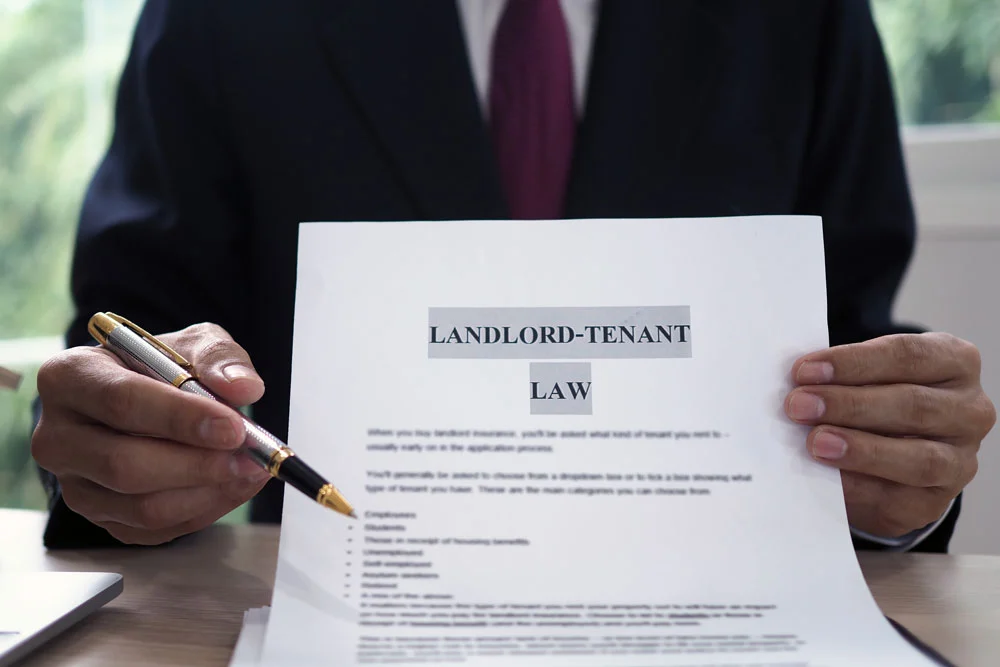Subtotal $0.00
Landlord and tenant law governs the relationship between landlords and tenants, outlining the rights and responsibilities of each party. This area of law is crucial for ensuring fair treatment, resolving disputes, and managing rental agreements effectively. It covers various aspects, including lease agreements, property maintenance, eviction procedures, and tenant rights.
A lease agreement is a legal contract between a landlord and a tenant that outlines the terms and conditions of renting a property. This document is essential as it sets the expectations for both parties and provides a clear understanding of their obligations. Key elements of a lease agreement include:

For instance, a lease agreement for an apartment might specify that rent is $1,200 per month, due on the first day of each month. It may also state that the lease term is one year, with an option to renew. The agreement might require a security deposit equal to one month’s rent, refundable upon vacating the property if no damage is incurred.
Tenants have specific rights under the law to ensure their rental experience is fair and secure. These rights include:
If a tenant discovers a serious plumbing issue in their apartment, they have the right to request repairs from the landlord. If the landlord fails to address the issue promptly, the tenant may seek legal remedies or withhold rent until the repair is made.
Landlords have various obligations to ensure their properties are managed correctly and in compliance with the law. Key responsibilities include:
If a landlord receives a complaint about a malfunctioning heater during the winter months, they must arrange for repairs promptly to ensure the tenant remains comfortable and safe. Failure to do so could result in legal consequences or tenant claims.
Disputes can arise between landlords and tenants for various reasons, including disagreements over rent, maintenance issues, or lease terms. Effective resolution of these disputes involves:

If a tenant and landlord disagree over an increase in rent, they may first discuss the issue directly. If an agreement cannot be reached, they might seek mediation services or consult legal counsel to address the matter in court.
Eviction is a legal process that a landlord can use to terminate a lease and regain possession of the property. It must follow specific legal procedures to ensure fairness. Key aspects include:
A landlord wishing to evict a tenant for non-payment of rent must first issue a formal notice of termination. If the tenant fails to vacate the property within the notice period, the landlord must file an eviction lawsuit. The court will then schedule a hearing to determine the outcome.
Our firm provides comprehensive services for both landlords and tenants, ensuring that your rights and responsibilities are protected. Whether you need assistance drafting lease agreements, resolving disputes, or navigating eviction procedures, our experienced professionals are here to support you.
A lease agreement should include details about rent amount, payment terms, lease duration, security deposit, maintenance responsibilities, and any rules and regulations. This helps ensure that both parties have a clear understanding of their obligations.
Tenants have the right to a habitable living space, which means the landlord must address maintenance issues and ensure the property meets safety and health standards. Tenants can request repairs and expect timely action from the landlord.
Disputes can often be resolved through open communication, mediation services, or legal action if necessary. Both parties should attempt to address the issue amicably before pursuing formal legal procedures.
Eviction involves providing proper notice to the tenant, filing for eviction in court if necessary, and following legal procedures to regain possession of the property. Tenants have rights during this process and can contest the eviction in court.
If you receive an eviction notice, review it carefully to understand the reason and timeframe. You may want to seek legal advice, negotiate with the landlord, or contest the eviction in court if you believe it is unjust.